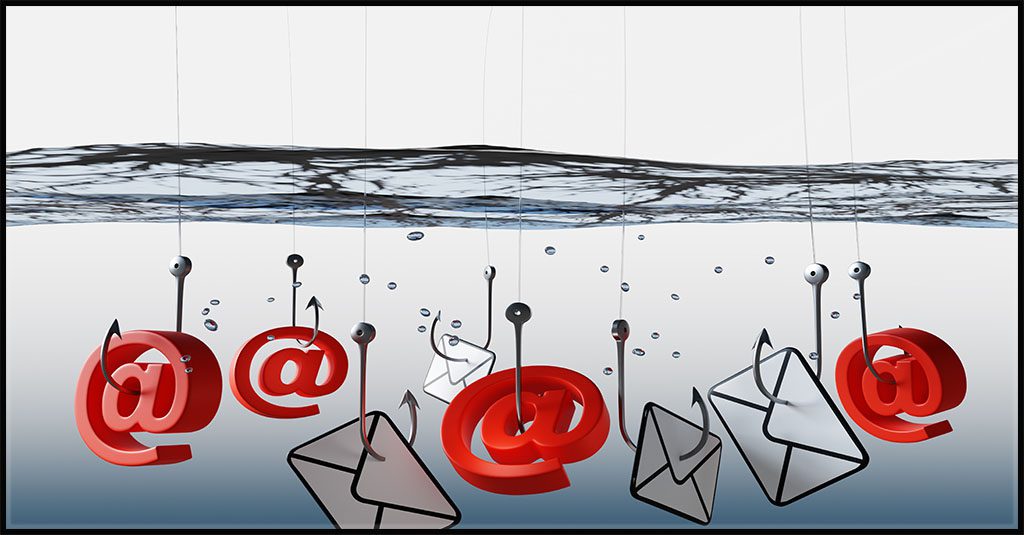How Anti-phishing Solutions Shield Businesses From 4 Dangerous Cyberattacks

Phishing schemes pose some of the most dangerous threats to businesses. From business email compromise (BEC) and clone phishing to spear phishing and whaling, these targeted attacks are designed to deceive employees and exploit vulnerabilities, often leading to significant financial and reputational damage. In the Kaseya Security Survey Report 2023, 78% of respondents said they believe that they will be hit by phishing in the next year. While there are several ways to mitigate phishing risk, one of the best measures is to add an anti-phishing solution to your organization’s defensive array.

What challenges will IT pros face in the second half of 2024? Find out in the Mid-Year Cyber Risk Report. GET IT>>
Easily mitigate these 4 phishing attacks with an anti-phishing solution
Phishing attacks come in various forms, each with its own set of dangers and potential consequences. Here are four of the most dangerous types of phishing attacks along with the severe impacts they can have, and how an anti-phishing solution can help prevent them:
1. Spear phishing
- What it is: Spear phishing is a highly targeted phishing attack that involves cybercriminals gathering detailed information about a specific individual or organization to create a personalized and convincing email. About 98% of cyberattacks contain elements of social engineering. The goal is often to gain unauthorized access to sensitive information or to trick the target into performing actions, like wire transfers.
- Consequences:
- Data breach: The attacker may gain access to confidential company data, intellectual property or personal information.
- Financial loss: Targets may be manipulated into transferring large sums of money to fraudulent accounts.
- Compromise of internal systems: Attackers may use spear phishing to obtain login credentials, leading to further compromise of internal systems and networks.
- Prevention by anti-phishing solution: An anti-phishing solution can detect the subtle signs of spear phishing, such as unusual sender addresses or requests for sensitive information. A solution that leverages machine learning (ML) can also analyze the content for language patterns that indicate social engineering attempts, blocking these emails before they reach the intended target.
2. Whaling
- What it is: Whaling is a form of spear phishing that targets high-level executives within an organization, such as CEOs, CFOs and other key decision-makers. The emails are often crafted to appear as urgent business communications or legal requests.
- Consequences:
- Large-scale financial fraud: Executives may be tricked into authorizing large wire transfers or disclosing sensitive financial information.
- Business disruption: Attackers might gain access to strategic business information, leading to significant operational disruptions or competitive disadvantages.
- Reputation damage: If executives fall victim to such attacks, the company’s reputation can suffer, especially if the breach becomes public knowledge.
- Prevention by anti-phishing solution: Anti-phishing tools can flag emails that impersonate high-level executives or contain unusual requests. They can also analyze the email’s context and intent, preventing fraudulent messages from reaching senior executives.

Learn to defend against today’s sophisticated email-based cyberattacks DOWNLOAD EBOOK>>
3. Clone phishing
- What it is: Clone phishing involves the creation of a near-exact replica of a legitimate email that a victim has previously received, but with malicious links or attachments substituted. Because the email appears to come from a trusted source and references an earlier legitimate communication, it can be highly convincing.
- Consequences:
- Malware infection: Clicking on malicious links or downloading attachments can lead to the installation of malware, ransomware or spyware.
- Credential theft: Victims may be directed to fake login pages designed to capture their credentials.
- Spread of attack: If a victim unknowingly forwards the cloned email within the organization, the attack can quickly spread to others.
- Prevention by anti-phishing solution: Anti-phishing solutions can detect cloned emails by analyzing discrepancies in the sender’s address, subtle changes in the email content or unusual attachment behavior. They can also perform real-time URL analysis to block malicious links.
4. Business email compromise (BEC)
- What it is: BEC is a sophisticated scam that involves attackers compromising a business email account or impersonating a company’s trusted contacts, such as suppliers or partners. The U.S. Federal Bureau of Investigation reports that BEC losses have increased by more than 65% since 2019. The average cost per complaint has increased from $74,723 in 2019 to $137,132.03 in 2023. The goal is often to trick employees into transferring funds, changing payment information or sharing sensitive data.
- Consequences:
- Significant financial losses: Companies can lose large amounts of money through fraudulent wire transfers or payment redirections.
- Supply chain compromise: Attackers may gain unauthorized access to sensitive information about the company’s supply chain, leading to further attacks on suppliers or partners.
- Erosion of trust: Once discovered, a BEC attack can lead to a loss of trust between the company and its business partners, damaging long-standing relationships.
Prevention by anti-phishing solution: An anti-phishing solution can monitor for signs of email compromise, such as unusual email activity, and block suspicious emails from both internal and external sources. An anti-phishing solution that makes the most of artificial intelligence (AI) can also detect and flag emails that request changes to payment instructions or other financial details.

Is building an in-house SOC a smart move? Our whitepaper breaks down the costs. READ IT>>
ID Agent and RocketCyber help IT professionals mitigate cyber risk affordably
Our cybersecurity solutions offer the tools that MSPs and IT professionals need to mitigate cyber-risk effectively and affordably with automations and AI-driven features that also make IT professionals’ lives easier.
BullPhish ID — This effective, automated security awareness training and phishing simulation solution provides critical training that improves compliance, prevents employee mistakes and reduces a company’s risk of being hit by a cyberattack.
Dark Web ID — Our award-winning dark web monitoring solution is the channel leader for a good reason: it provides the greatest amount of protection around with 24/7/365 human and machine-powered monitoring of business and personal credentials, including domains, IP addresses and email addresses.
Graphus — This automated anti-phishing solution uses AI and a patented algorithm to catch and quarantine dangerous messages. It learns from every organization’s unique communication patterns to continuously tailor protection without human intervention. Best of all, it deploys in minutes to defend businesses from phishing and email-based cyberattacks including Zero-Day, AI-created and novel threats.
RocketCyber Managed SOC — Our managed cybersecurity detection and response (MDR) solution is backed by a world-class security operations center that detects malicious and suspicious activity across three critical attack vectors: endpoint, network and cloud.
Book a demo of BullPhish ID, Dark Web ID, RocketCyber Managed SOC andGraphus. BOOK IT>>